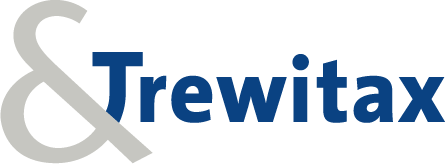
Publikationen
EXPERT INFO 02/2022EXPERTsuisse SME
Practical information 02/2022
Termination of employment:
Social security aspects
Introduction
When the employment relationship ends, the employer's insurance coverage for the employee also ends. The focus is on daily sickness benefit insurance, mandatory accident insurance, and mandatory insurance in the pension fund. There are continuation options for various social insurances that may be of interest to employees. Clarifications on insurance continuation should be made at the outset, because deadlines and benefit entitlements are different for all insurances.
Insurance in detail
The daily sickness allowance provides for a switch to individual insurance if the employee does not have sufficient insurance coverage after termination of employment. It must be stipulated within three months after termination of employment. If a new job is accepted directly and the new employer takes out daily sickness benefit insurance for the employee, there should be no gap in insurance coverage. If the employee is incapacitated for work and this incapacity continues even after the end of employment, in most cases the insurance company will continue to pay daily allowance to the employee even after the end of employment, until the maximum entitlement is exhausted.
Compulsory accident insurance protects employees working in Switzerland from the health and economic consequences of occupational and non-occupational accidents or occupational diseases. Accident insurance coverage ends within 31 days of termination of employment. If there is no new employment relationship, the employee has the option to extend the accident insurance coverage with the previous insurance company for up to six months. Since this is conventional insurance, the premium must be paid and the relevant application submitted within 30 days. If you start a new job immediately, your new employer will take over your accident insurance coverage. If you are injured during your employment, your previous accident insurance remains responsible for all consequences of the accident.
Retirement assets in the retirement fund are transferred to the retirement fund of the new employer. If there is no new employment relationship, the active balance is transferred to a vested account. In this way, insurance coverage for death and disability risks continues for one month after the end of the employment relationship. If you have not found a new job and have not enrolled in unemployment insurance, you can continue to insure yourself voluntarily with supplementary insurance. In this case, all mandatory contributions must be paid by the insured person. As of January 1, 2021, people over the age of 58 can remain insured with the previous pension fund in case of termination of employment. If the employee decides to continue insurance, he or she must also personally pay all risk contributions. The payment of savings contributions is voluntary.
Obligations of the employer
Upon termination of employment, the employer must inform the employee about social security aspects. This applies regardless of which party terminated the employment relationship. The law (Art. 331(4) CO) stipulates that the employer must inform the employee of the claim rights to which he or she is entitled. The Federal Supreme Court has confirmed that the duty to inform also includes accident insurance and daily sickness benefits, in addition to the pension fund. If the employer is unable to prove that it has fulfilled its information obligation, it may be liable for high damages. Therefore, it is recommended that every employer fulfill this information obligation in writing and have the employee confirm this. Failure to disclose the right to switch to individual daily allowance insurance may result in a claim for 80% of two years' salary.
"In a nutshell."
1. it is recommended that clarifications on continuing insurance options be made in advance and in full.
(2) Upon termination of employment, the employer shall inform the employee of his or her claims against a pension scheme or insurance institution.
3. failure to provide information may result in high claims for the employer.
Dipl. Wirt.-Ing. Martin Klumpp

